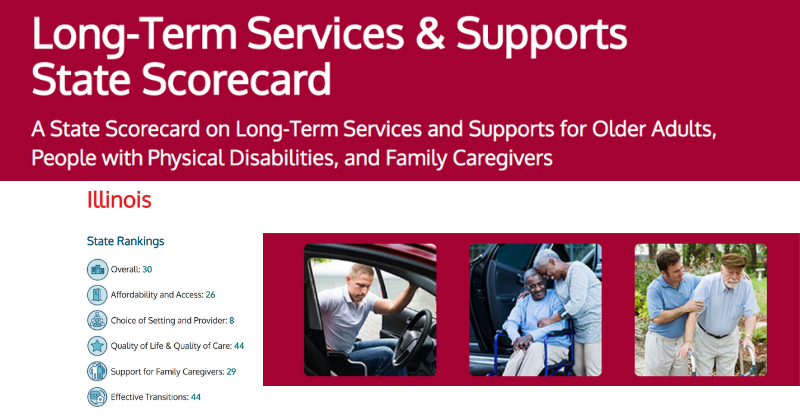
Baby boomers begin to turn 80 in 2026, and states must accelerate the pace of improving long-term services and supports (LTSS) for older people and adults with disabilities according to AARP’s new state scorecard, Picking Up the Pace of Change: A State Scorecard on Long-Term Services and Supports for Older Adults, People with Physical Disabilities, and Family Caregivers.
“Millions of baby boomers will be facing greater health needs over the next few decades, and this scorecard shows we are still falling short of where we need to be to address those needs,” said Commonwealth Fund President David Blumenthal, M.D. “We need to begin now to make care for elders and people with disabilities more available in homes and communities—where many people prefer to be—instead of in institutions like nursing homes.”
The Long-Term Services & Supports State Scorecard, a state scorecard on long-term services and supports for older adults, people with physical disabilities, and family caregivers, ranked Illinois #30 out of the 50 states in the most recent survey, 2017. Neighboring Indiana ranked 50 out of 50 on the scorecard. The LTSS Scorecard finds that long-term care remains unaffordable for middle-class families in Illinois.
The scorecard is a funded by AARP, The Commonwealth Fund, and The SCAN Foundation and designed to help states improve the performance of their Long-Term Services and Supports systems
“so that older people and adults with disabilities in all states can exercise choice and control over their lives, thereby maximizing their independence and well-being. State policymakers often control key indicators measured, and they can influence others through oversight activities and incentives.”
The scorecard evaluates long-term care system performance in five areas:
1. affordability and access
2. choice of setting and provider
3. quality of life and quality of care
4. support for family caregivers
5. effective transitions between care settings
The survey results also show that:
• the cost of LTSS over time continues to be much higher than what the majority of families can afford
• overall improvements in services are not keeping up with the demand
• inappropriate antipsychotic drug use for nursing home residents has decreased since the previous survey in 2014
• the number of Medicaid recipients receiving care at home or in the community rather than in an institution has increased
• there are not enough home care workers
Estate planning for older adults helps you plan for and protect your future. To talk to an experienced Chicago and Lombard estate planning and elder law attorney contact the Estate & Probate Legal Group in Lombard Illinois at 630-800-0112.